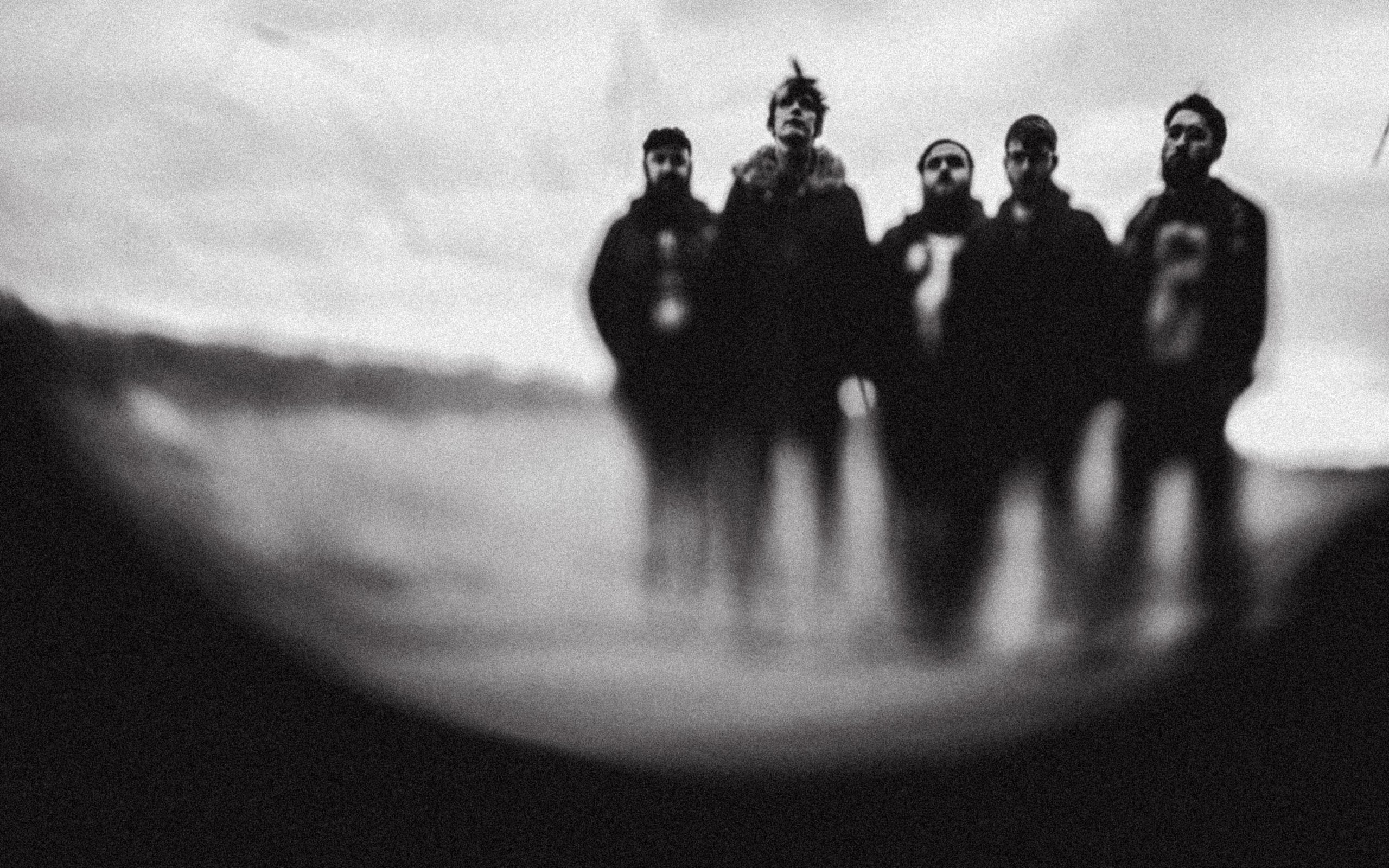
Morgan Tedd
July 30, 2021| Dan Hillier |FEATURES

Our Bodies Burned Bright On Re-Entry – Track By Track with Underdark
Since their inception in 2015, the staunch anti-facist collective Underdark have been a brightly burning light in the shadowed confines of UK black metal.
Across their initial extended play Mourning Cloak and a selection of standalone singles, the Nottingham based group have marred the incendiary relentlessness of the black metal sound with motifs of poetic grace. Whilst these scorching barrages of dynamic and palpable fury served as the establishment of their sound and ethos, it feels like Underdark where simply laying the foundations for what was to succeed. Released today is Our Bodies Burned Bright On Re-Entry, the group’s debut full length and their all annihilating mission statement as a musical collective.
Composed of five sprawling tracks, Our Bodies Burned Bright On Re-Entry see’s Underdark magnificently showcasing their most accomplished work to date. Whilst the record as a whole leans into the barbed rawness and ferocity that the black metal sound is stereotactically known for, it’s also a record of balance and composure, one that’s elegant in the way it incorporates moments of ethereal majesty. Yet, one of the best and most vital elements of this record is the way it uses it’s dynamic finesse to articulate it’s subject matters. Composed of deeply personal tales of struggle along with explorations of human exploitation in our fractured world, this is a deeply poignant record in terms of it’s lyrical contents.
With Our Bodies Burned Bright On Re-Entry out today via Surviving Sounds (UK), Through Love Records (EU) and Tridroid Records (US/CAN), we got in touch with vocalist Abi Vasquez to discover the meanings of the record, track by track.
Related: Underdark – Our Bodies Burned Bright On Re-Entry | Album Review
Qeres
“The title is a hangover from being brought up Catholic – in Genesis, reference is made to qeres, a perfume which is deadly to angels. The reason I called the song that is because the lyrics are a dramatic retelling of a close friend’s suicide attempt in winter of 2018. We were both in pretty bad shape at the time, which is where the “stay and suffer with me” line comes in – partly I don’t want my friend to die, partly I’m mad that it’s not me who gets to. In spite of that, I think it’s an optimistic song. Optimism or positivity doesn’t always look like a grin and a skip, sometimes it means digging your nails in and hanging on until the worst shit is over. That’s what the repeating phrase at the end is about – you can stand strong alone, I’ve seen you live through this before. That’s the message I want people to leave the song with – you CAN take it, you ARE tough, you WILL survive.”
Our Bodies Burned Bright On Re-Entry
“This is another personal one, again with a narrative structure. The inciting incident for writing this was when someone very dear to me visited from Canada while I was in the middle of an opiate withdrawal, the guilt and shame you feel when someone you love looks at you like she’s worried you might die. There are also three references in this, firstly to ‘Fourth Degree Burns’, which is a Pig Destroyer song. They’re one of my favourite bands, and the theme of that song mirrors what I’m writing about in Bodies. The second is Sylvia Plath, whose poetry my friend’s poems remind me of. Finally, there’s a reference to Jawbreaker’s ‘Kiss The Bottle’, which is something we’d reference back and forth to each other. The final line in that part – if we never fell like this, how do we know what falling is – is about how falling is an inbuilt fear humans have on a genetic level, how people can have nightmares about falling even if they never have fallen great distances. I’m equating that to the waking nightmare of comedown and withdrawal, and also the horror of simultaneously craving and fearing intimacy.”
Coyotes
“At last, a song that isn’t about my stupid life. So ‘coyote’ is a slang term for pelleros, people who smuggle the people across the US-Mexico border. I wrote the song about mistreatment of migrants, about how many of these coyotes are on the take from people in the US, and funnel migrants into exploitative situations – selling them promises and shipping them into servitude. It’s also about the hypocrisy of Americans who complain about border hoppers, but will happily cross the border themselves for affordable medical care. I think the refrain – “fuck your borders” – is kind of puerile. It sounds better in a song than “enforce border regulations even handedly and treat undocumented migrants humanely”, but ultimately it’s a gut reaction and my actual views on it are more complicated – it’s a complicated issue, after all.”
With Ashen Hands Around Our Throats
“This song is about Grenfell in its immediacy, but also about the wider reaching impacts of allowing landlords to get away with bullshit. The past decade or so has seen a relaxation of the regulations that protect tenants from things like flammable cladding, which was the reason the Grenfell fire was so devastating. It makes you wonder, as a renter, how safe your accommodation is, and it’s completely out of your hands – as the agreements are so weighted in favour of the landlord, you may find yourself punished financially – ie through loss of deposit – for trying to improve the safety of the place where you live, and you find yourself having to trust that a stranger will do more than they have to.”
Skeleton Queen
“This song is about burnout. In my life, I’m the singer of Underdark, I’m a novelist and ARG writer, and I work full time in an office. That’s a lot to balance if you also want to have interpersonal relationships, and that is what the song is – the anxiety surrounding committing to work and watching your personal life erode, or living with a compromise where you get to be a person but you feel unfulfilled creatively. La reina de lose huesos – the queen of bones – is a character I invented that embodies this, someone who has put themselves through hell, ie worked to the bone, to try and maintain that kind of pace of output. Obviously the song has quite a dramatic ending – DIE ABI DIE – which is my favourite part of our live set. Becoming the skeleton queen is a nasty end for Abi the character, hopefully I can avoid that in real life.”



